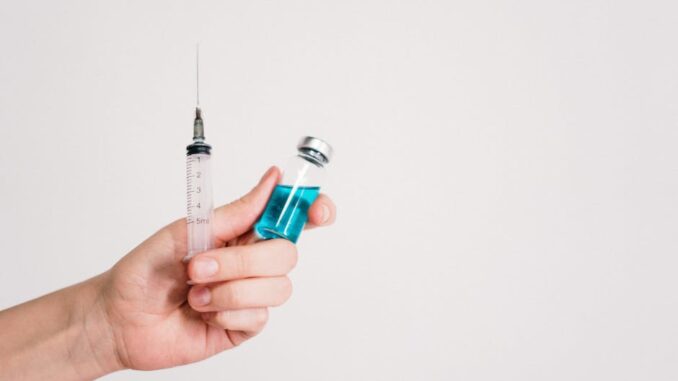
Summary
New research confirms no link between COVID-19 vaccination during the first trimester of pregnancy and birth defects. Studies show mRNA vaccines are safe and do not increase the risk of congenital anomalies. These findings reinforce recommendations for pregnant women to get vaccinated against COVID-19.
** Main Story**
Okay, let’s talk about some reassuring news, especially for expecting mothers. There’s been some really robust research lately that definitively shows COVID-19 vaccines don’t cause birth defects. It’s a big weight off everyone’s shoulders, right? I mean, that was a major concern swirling around, particularly regarding vaccination during the first trimester. So, let’s dive into what the science says and, also, take a quick look at some other exciting advancements in pediatric care.
Landmark Studies are Saying ‘Safe!’
We’ve seen a wave of large-scale studies tackling this head-on. And the amazing thing is, they’re all singing the same tune: no increased risk of birth defects linked to the COVID-19 vaccines.
One study, for example, published in JAMA Pediatrics, looked at over 42,000 pregnancies. Guess what? No connection found between mRNA vaccines and major birth defects. Then, a BMJ study analyzed a staggering 340,000 infants across several Nordic countries. Seriously impressive numbers! They were checking for all sorts of defects and didn’t find any spikes associated with mothers who got the mRNA vaccine or even those who contracted COVID-19 during their first trimester. And I think that should reassure pregnant women and those caring for them.
Why This Matters for Moms and Kids
Honestly, these findings are huge for maternal and child health. You see, getting COVID-19 while pregnant isn’t just a mild inconvenience; it can be downright dangerous. We’re talking about potentially severe illness for the mother, premature birth, and a host of other complications. Vaccination, on the other hand, slashes those risks significantly. But you know, if you think you’ll harm your baby getting the vaccine, I can see the hesitation.
But here’s the thing, knowing vaccines don’t up the risk of birth defects? That takes away a major obstacle. I see it as really empowering pregnant women to make informed, confident decisions about their health and, by extension, their child’s. Think about it; it could lead to healthier pregnancies overall and less pressure on neonatal intensive care units. That’s something we can all get behind.
Pediatric Care is Evolving Fast
It’s not just about COVID-19, though. Pediatric care, in general, is undergoing a constant, rapid evolution. I mean, it’s amazing what’s happening, and it’s only getting better with new technologies. Let’s just take a quick look:
Tech is Transforming Things:
- Imagine non-invasive screening tools that catch diseases super early, that’s where we are heading.
- Wearable tech constantly monitors your kid’s health, a real game-changer.
- Targeted therapies are getting more precise, and more effective.
- Telemedicine is expanding access, especially in areas that need it.
- And AI? It’s helping with everything from diagnoses to drug discovery. Who’d have thought?
Therapeutic Breakthroughs:
- Gene therapy is giving hope for those with genetic disorders – that’s big.
- Nanotechnology is enabling targeted drug delivery. I mean, wow!
- Robotic-assisted surgery is less invasive, a win for everyone.
Focusing on Mental Health:
- Digital therapeutics, like mobile apps, are delivering accessible support, something we desperately need for our younger generation.
- Biofeedback and neurofeedback can help kids manage ADHD and behavioral issues. It’s all about finding the right tools.
It’s just a snapshot, sure, but you can see the remarkable progress happening. The aim? Better outcomes, fewer long-term complications, and a seriously improved quality of life for our kids.
The Bottom Line
The science is clear. COVID-19 vaccines are safe for pregnant women. Period. They don’t cause birth defects, and that information is crucial. It empowers expectant mothers to make the best choices for themselves and their babies. And looking at the bigger picture, the ongoing advances in pediatric care show we’re committed to improving the health and well-being of children. As research keeps pushing forward and technology evolves, I think we can expect even more breakthroughs on the horizon. It’s an exciting time, isn’t it?


Given the reassurance provided by these studies, what strategies can be implemented to effectively communicate this information to communities where vaccine hesitancy during pregnancy remains high?
That’s a great question! Tailoring the message to specific community concerns is key. Partnering with trusted local figures, like community leaders or healthcare providers, could increase trust. Using relatable stories and addressing misinformation directly are also crucial strategies for effectively communicating this important information. What other approaches do you think could be impactful?
Editor: MedTechNews.Uk
Thank you to our Sponsor Esdebe